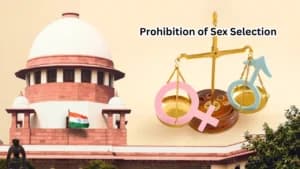At the Kerala High Court in Ernakulam on a humid Friday afternoon, the courtroom carried a sense of impatience as counsels shuffled papers and whispered urgent updates. When the bench of Justice Devan Ramachandran and Justice M.B. Snehalatha finally took their seats, the matter involving a 17-year-old girl's fight for maintenance against her own father was called.
What followed felt, at moments, like a mix of legal reasoning and emotional undertones, because despite all the technicalities, the case dealt with something painfully straightforward - a father’s duty to his child.
Background
The teenager, represented by her mother, approached the Family Court in Chavara earlier this year. She claimed that her father, a former LD Clerk in the Panchayat Department, had completely failed to provide for her - not just recently, but for nearly 15 years. Even an earlier maintenance order of ₹2,000 per month, passed by the Judicial First Class Magistrate Court in 2009, had never been honoured.
The child’s education expenses have mounted sharply, with more than ₹2.74 lakh already spent on school and hostel fees. And as she prepares for further studies, she insists she needs another ₹3 lakh for course fees, ₹10,000 per month for hostel charges, and ₹20,000 per month as maintenance. Her apprehension was simple - with her father retiring on 31 May 2025 and expected to receive a large sum, she feared he would withdraw or divert the entire amount before she could secure her legal rights.
The Family Court, however, dismissed her plea for attachment before judgment. It relied heavily on a Supreme Court decision in Radhey Shyam Gupta, which held that pension and gratuity are exempt from attachment under Section 60(1)(g) of the Code of Civil Procedure (CPC).
Read also:- Delhi High Court Upholds NMC’s Rejection of 100 Additional MBBS Seats for Dr. B.S. Kushwah Institute
Court's Observations
The High Court bench, during the hearing, repeatedly questioned whether the Family Court had overlooked the nature of the claimant - not a creditor, not a bank, but a minor daughter entitled to care. At one point, the bench observed,
"Maintenance is not a debt. It is a legal and moral duty; the child cannot be treated like a creditor."
Justice Snehalatha, who authored the judgment, highlighted that retirement benefits are protected so that an employee can sustain himself and his family after retirement. But here, the bench noted,
"the protection cannot be stretched so far that it ends up punishing the dependent child instead."
The court turned to constitutional principles as well. Articles 15(3) and 39, the judges said, are not ornamental. They expressly direct protection of women and children, and maintenance laws exist to enforce these social justice objectives. Citing the landmark case Ramesh Chander Kaushal v. Veena Kaushal, the bench reiterated that maintenance is a social justice measure designed to prevent destitution.
One striking comment from the bench captured the sentiment plainly:
"A father cannot claim exemption under the CPC while denying basic sustenance to his own daughter."
The High Court also clarified why the Radhey Shyam Gupta decision was not relevant here. That case involved a bank trying to recover a debt from retiral benefits. Here, the High Court stressed, the facts were entirely different - this was a dependent child seeking survival, not a commercial creditor seeking recovery.
Decision
In a decisive ruling, the High Court set aside the Family Court’s order. The judges directed the Family Court in Chavara to reconsider the plea for attachment before judgment and evaluate it afresh, this time keeping in mind the High Court’s findings. Both sides have been ordered to appear before the Family Court on 18 November 2025.
And with that clear directive, the order concluded firm, unambiguous, and leaving no confusion about the court’s stance on the father’s responsibility.
Case Title: Rifa Fathima vs. Salim & Others
Case Number: OP(FC) No. 503 of 2025
Date of Judgment: 07 November 2025















